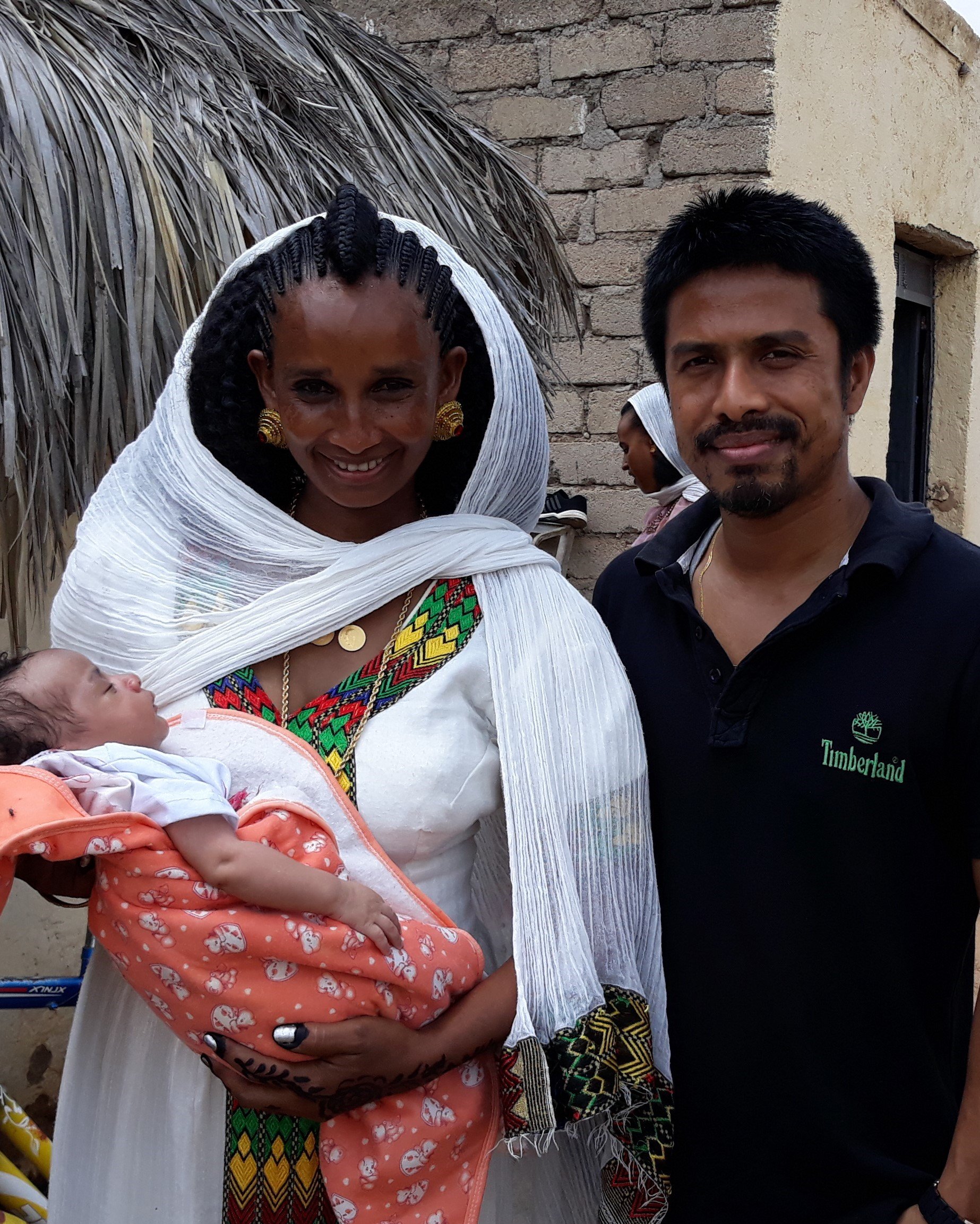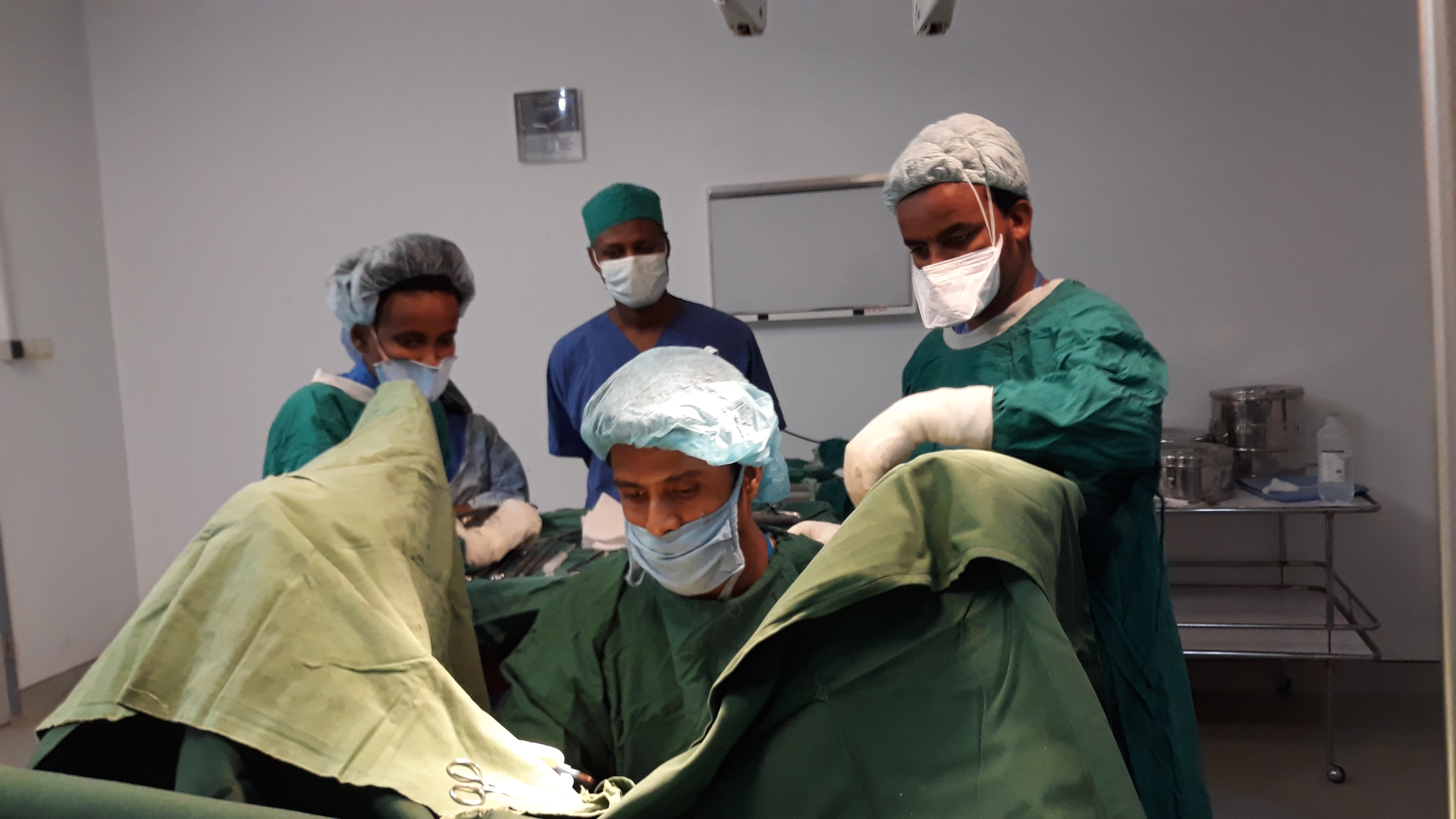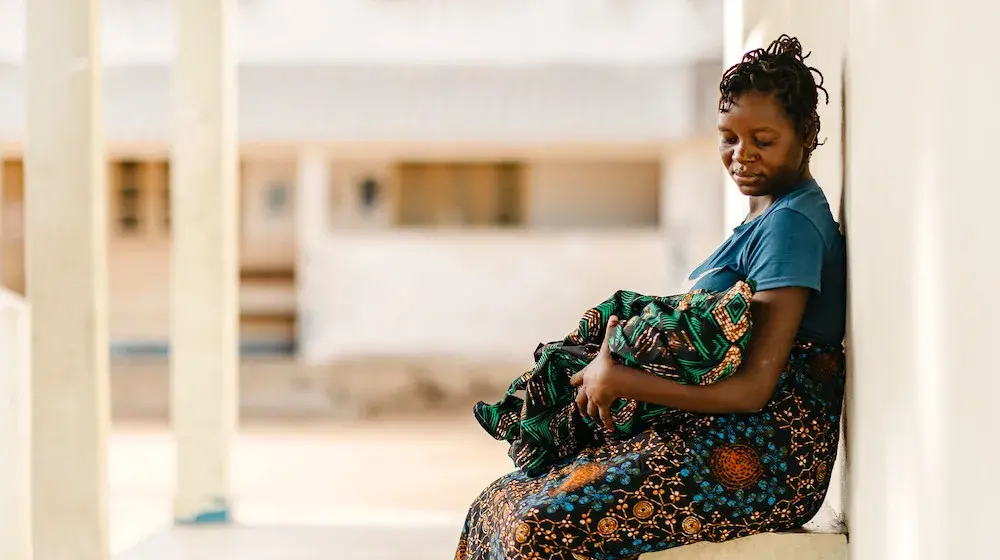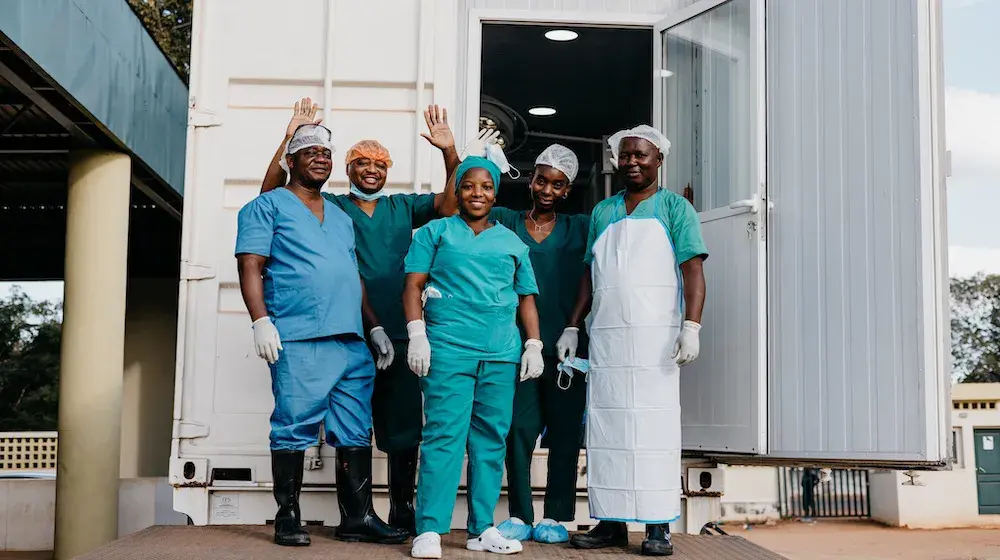
Dr. Sailesh Rajbanshi, is a Nepalese medical doctor, obstetrician, and gynecologist who has over 10 years of experience in Nepal, Maldives, Bangladesh and now in Eritrea since December 2019. At the same time, the COVID-19 pandemic emerged. He is one of the eight specialists working in Eritrea as consultants hired by UNFPA, the United Nations Population Fund, to aid the shortage of specialist obstetricians in Eritrea. He is stationed in Barentu, the zonal referral hospital, the capital of Zoba Gash Barka, which is around 230 kilometers away from the capital city of the country, Asmara. Gash-Barka is bordered by Sudan and Ethiopia is the region that has recorded the highest number of COVID-19 cases through cross border movement.
As an obstetrician, Dr. Sailesh was aware that he would be placed in a rural area that most of the time requires a greater need for sexual and reproductive health rights of women and girls due to various socio-economic reasons. Dr. Sailesh strives to contribute to the UNFPA Vision of zero preventable maternal deaths, zero unmet need for family planning, and zero gender-based violence through his profession and passion. His positive belief is that he can contribute to the sexual and reproductive health rights of the underprivileged and the marginalized population that are at the utmost need of the services and that is what led him to work in Eritrea.
Dr. Sailesh delivers, on average, to 4 or 5 babies every day, one of which is a cesarean section. The hospital receives referrals from health stations and health centers which are 4 to 5 hours away by ambulance. The geographical terrain of the region is challenging with inaccessible road systems creating more problems and delays to those coming from far, not to mention the obstetric complications, which are seldom referred to the zonal referral hospital.
The low awareness among the people about their sexual and reproductive health rights is a major challenge; Dr. Sailesh emphasizes, “Free education, almost free health system, simple way of living and plenty of leisure time are the reasons, I assume, that encourage the couples to have more kids.”
Women need to realize the importance of proper antenatal care during pregnancy, the importance of health institutions based deliveries, and the importance of family planning methods. This is not the case due to lack of awareness, low literacy, and the firm belief in their traditional practices, which most of the time, turn to be harmful.
They prefer to deliver at homes and they only visit the health institutions when things get complicated, sometimes this costs them their lives

Family planning methods uptake is very low in the area. Maternal mortality remains high despite the dedicated work of the government in building hospitals and clinics in the region. In the zonal referral hospital of Barentu health education and counseling on the benefits of proper antenatal care (ANC), proper nutrition, hygiene, health institution based deliveries, and the importance of family planning methods are provided on a daily basis to all visitors and patients. They are encouraged to adopt modern family planning methods; however, the uptake remains very low due to social, cultural, and health reasons.
Free education, almost free health system, simple way of living, and plenty of leisure time are the reasons, I assume, that encourage the couples to have more kids
During the COVID-19 pandemic total lockdown, restrictions were imposed on the mobility of people and transportation. Pregnant women are still facing difficulties accessing health services for ANC, during labor and delivery. The logistic and supply chain system was interrupted throughout the country. This imposed inadequacy of necessary medicines and other commodities, resulting in inadequate health services. Still, preventive measures like social distancing, hand sanitizers, soap, and water, were followed by the general public. Health education activities and materials were available to the community by the Ministry of Health and with the support of UNFPA.




